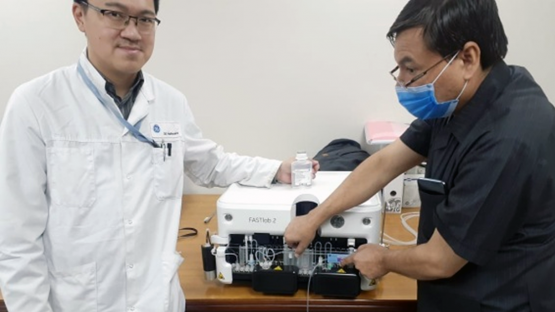Pakistan’s Institute of Nuclear Medicine and Oncology (INMOL) in Lahore and its Nuclear Medicine Oncology and Radiotherapy Centre (INOR) in Abbottabad are now producing novel radiopharmaceuticals for use in theranostic procedures, using equipment and training provided through the IAEA’s technical cooperation (TC) programme1/. Theranostics is an emerging field of medicine which relies on a patient-centred and targeted approach, focussing on the precise treatment of cancers or infection sites. Theranostics experts use radiopharmaceuticals to either simultaneously or sequentially diagnose and then treat medical conditions.
Non-communicable diseases such as cancer, neurological disorders and cardiac dysfunction are of increasing concern to national health authorities in Pakistan because, taken together, these illnesses are responsible for more than 70% of age-standardized deaths in the country. The incidence of non-communicable disease is expected to double in the country by 2025 if appropriate diagnostics and treatment are not introduced.
The World Health Organization estimates that approximately 1.5 million cancer patients live in Pakistan, a number which is increasing by 150 000 patients per year.
Theranostic interventions have been shown to produce more accurate diagnoses, facilitate the tumour-specific delivery of drugs and reduce hazards to normal, healthy tissue. In addition, by eliminating multi-step procedures and by consolidating diagnosis and treatment into a single process, theranostics also help to reduce delays in treatment and improve the outcomes and experiences of clinical patients.








